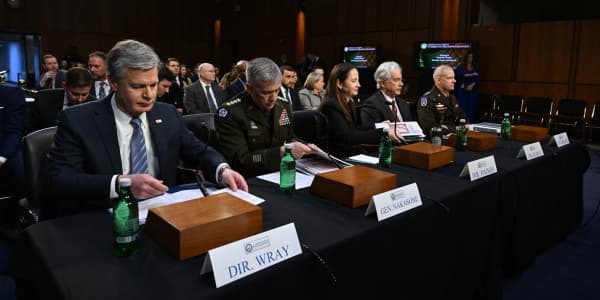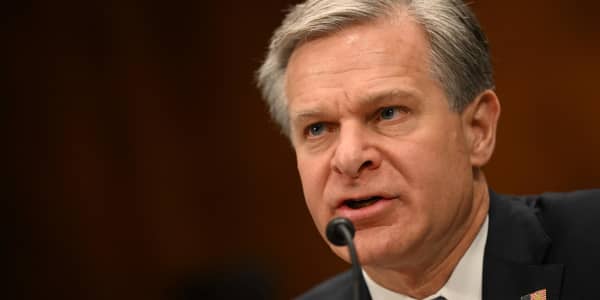In the public eye
Using demonstrations, opinion pieces and campaigns in traditional media and increasingly over social media, and especially by voting with their dollars and boycotting, consumers are flexing their right to an opinion—and sometimes they get results.
On Tuesday, Tyson Foods, the largest poultry producer in the U.S., said it would cut the use of human antibiotics on . Last week, four brands announced changes to each of their businesses because of protests and pressure from organizations and the public.
Mattel confirmed it was halting production of Sea World Trainer Barbie following a backlash against the aquatic parks from animal rights activists over treatment of orcas and the safety of trainers.
Kraft said it would in its macaroni and cheese meal following petitions by consumer advocates. Sales of the iconic product have sagged of late as consumers turned toward less processed alternatives.
Similarly, Pepsi announced it will stop using aspartame as a sweetener in Diet Pepsi and other products due to consumer requests to ditch the artificial sweetener
Meanwhile, as the Supreme Court weighs a case against Abercrombie & Fitch over whether it denied a Muslim applicant who wore a headscarf a job because of the retailer's dress code forbidding headwear, the company announced several changes to its policies. The brand said store associates would no longer be hired based on their body type or physical attractiveness, they would discontinue the use of shirtless models, and stop featuring sexualized images on shopping bags by July.
This isn't the first time Abercrombie has made a bid to change its image. After a 2013 petition targeting the brand's exclusionary sizing practices drew more than 80,000 signatures, the company launched an anti-bullying campaign, but critics labeled it insincere. The retailer also added some plus-size apparel to its assortment.
Here is a roundup of other examples of the power of public pressure to change company policy, in categories from food to fashion to personal care products.
—By Colleen Kane, special to CNBC
Posted 27 April 2015
Ringling Bros. and Barnum & Bailey Circus
On March 5, the self-proclaimed "Greatest Show on Earth" said it will eliminate elephants from its acts by 2018.
For more than a century, elephants have been so associated with the circus that they represent Ringling Bros. and Barnum & Bailey Circus in its promotional materials. But in recent decades, the use of elephants has been controversial due to the circus' bullhook training tool and the too-early separation of mothers from their babies, among other issues.
Concern for the welfare of the elephants is what prompted the circus' decision, according to Feld Entertainment, the parent company of the circus, as well as the difficulty of navigating "anti-circus" and "anti-elephant" ordinances in various cities as the circus tours.
"This decision was not easy, but it is in the best interest of our company, our elephants and our customers," Chairman and CEO Kenneth Feld said in a statement.
McDonald’s
McDonald's announced last month that it plans to eliminate the use of chickens that were raised using antibiotics "important to human medicine" over the next two years.
"Our customers want food that they feel great about eating—all the way from the farm to the restaurant—and these moves take a step toward better delivering on those expectations," McDonald's U.S President Mike Andres said in a statement.
The No. 1 fast food company's decision comes as the company struggles with declining profit and a shrinking customer base. Millennials continue to seek out more natural foods, and have been favoring chains like Chipotle that offer products considered to be more ethically sourced.
Several groups, including the Food and Drug Administration, the Centers for Disease Control and Prevention, and U.S. PIRG's Stop Overuse of Antibiotics Campaign, have pressed McDonald's—and other food companies—to go antibiotic-free. The CDC has cited more than 23,000 American deaths per year from antibiotic-resistant infections and has warned of "potentially catastrophic consequences" if no action is taken.
Now, other food companies and restaurant chains may be forced to respond. So far, Costco Wholesale has following suit, declaring plans to eliminate use of chicken and meat raised with human antibiotics. A Reuters report said the largest fried chicken chain KFC may be the next one under pressure to change.
One company has already responded. Tyson's aggressive plan to eliminate the use of human antibiotics in its chickens aims to help to help it meet McDonald's deadline, according to Reuters.
Nestle
A 2010 Internet campaign by Greenpeace, including a viral spoof KitKat ad, led Nestlé to change its palm oil supplier. The issue at stake: Some of the palm oil used in KitKat, Aero, and other Nestle confections was produced by companies that were cutting down vast expanses of rain forest, which destroyed tribal ancestral lands, killed orangutans and endangered species and contributed to emissions affecting climate change.
Once the danger was widely publicized, a number of companies had pledged to choose sustainable sources for their palm oil, but Nestle drew Greenpeace's ire when it would only agree to meeting the World Wildlife Fund's latest acceptable date of 2015 for phasing out the problematic oil.
Ultimately, Nestle agreed to source 18 percent of its palm oil sustainably by the end of 2010, and 50 percent by the end of 2011, and 100 percent by 2015. However, the company said by September 2013 it was able to responsibly source 100 percent of its palm oil, two years ahead of its commitment.
Johnson & Johnson
One of the reasons that groups pressure big corporations to change their ways is that their actions often have rippling effects. This was the case with Johnson & Johnson.
In 2012, consumer groups pressured the company to remove quaternium-15, a formaldehyde-releasing preservative, and 1,4-dioxane from its products. Formaldehyde is a carcinogen and 1,4-dioxane has been linked to cancer in lab animals.
Although J&J maintains these ingredients were at safe levels in their products, the company had reformulated 100 products to exclude these items by 2013. The New York Times called the move "the biggest yet by a major consumer products manufacturer."
Media reports said companies including Wal-Mart, Target and Proctor & Gamble also have plans to reduce or eliminate a variety of controversial ingredients and chemicals in their products.
P&G's plan focused on hormone-like phtlates and antibacterial triclosan, while Wal-Mart's effort focused on 10 chemicals that had been found in fragrances, cosmetics, household cleaners and personal care products. The retailer asked suppliers to disclose and eventually phase out these ingredients.
Inditex
In February, Inditex, the parent company of clothing retailer Zara, announced it was banning use of angora wool in its products, and donated its existing angora products to Syrian refugees in Lebanon.
The change was brought about after People for the Ethical Treatment of Animals (Peta) launched petitions and boycotts to end worldwide angora sales after it released undercover footage from the Chinese rabbit fur trade in 2013, showing fur being plucked from live, screaming rabbits. The graphic footage prompted more than 70 other retailers to ban use of angora, including Forever 21, Urban Outfitters, and Gap.
Intidex initially stopped ordering angora products in December 2013, saying it would look into the conditions at its angora suppliers. However, earlier this year, the company told The Guardian that although it hadn't found evidence of cruelty, "after consultation with animal welfare organizations to explore more sustainable ways to produce angora and help develop better standards within the industry, we have decided that banning angora production was the right decision."
Kimberly-Clark
In 2009, Greenpeace said "Kleercut," its five-year campaign aimed at Kimberly-Clark to save ancient forests like the Canadian Boreal Forest, had achieved a major victory.
The manufacturer of Kleenex, Cottonelle, and other paper products announced its goal of obtaining 100 percent of its wood fiber from environmentally responsible sources—that is, either recycled or certified by the Forest Stewardship Council. The company achieved this goal by 2012. Since 2011, the company has reduced the fiber used from natural forests by 24 percent, according to the company's 2013 sustainability report.
Prior to this shift, Greenpeace said the company had been using suppliers that were clear-cutting North America's largest ancient forest, not only threatening biodiversity (the forest is home to caribou, wolverine, eagles and more than 1 billion birds) but the environment, as the forest holds an estimated 27 years' worth of global greenhouse gas emissions.
Russell Athletic
In January 2009, a Honduran factory that supplied Russell Athletic was shut down soon after the workers unionized. The anti-sweatshop movement got on the case, with United Students Against Sweatshops persuading the administrations of more than 90 universities and colleges to suspend their licensing agreements. This translated to sales losses of sometimes more than $1 million per school.
By November, Russell agreed to rehire 1,200 Honduran workers from the shuttered factory and open a new, unionized factory. The company also pledged not to fight unionization in the other seven factories in Honduras.





